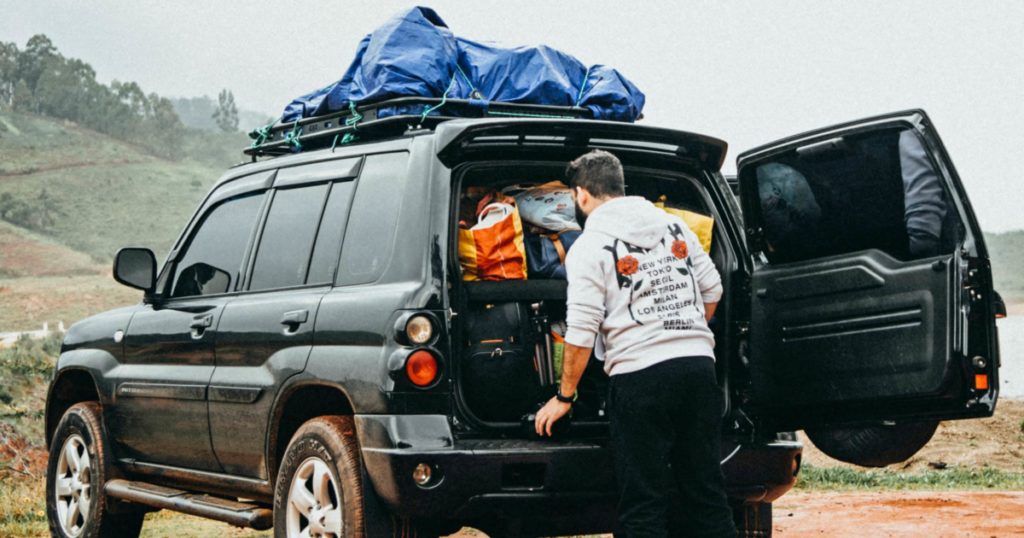Travel nursing is an outstanding way to visit new places, meet new people and gain valuable clinical experience you may not get as a staff nurse. While this career path can be tremendously rewarding, there are several things first-time travel nurses should keep in mind. Use these 10 helpful tips to know what to expect when switching from staff nursing jobs to travel nursing.
1. Keep Your Salary to Yourself

One of the biggest benefits of travel nursing is its excellent earning potential. On average, staff registered nurses make $37.24 per hour and an average annual salary of approximately $77,600. Travel nurses have the same level of education and perform the same duties but often receive six-figure salaries in most travel nursing positions.
Once the paychecks start rolling in, it’s normal to be excited by the extra dollars. However, not everyone will share your enthusiasm. Staff nurses may resent how much money travel nurses make for essentially doing the same job, and talking about how much more you earn is unlikely to win you any friends. Resentment in the workplace can also lead to an uncomfortable environment for everyone.
Another thing long-time travel RN Rachel Norton advises new travel nurses to keep to themselves are their opinions on how things should be done.
“Travel nursing can be challenging, especially for the first assignment,” Norton said. “However, travel nurses need to be flexible. As a new travel nurse, avoid statements like ‘well, at my hospital we do it this way’ or ‘at my old job we did this.’ No one wants to hear that. They want you to show up, do your job the way they ask and have minimal complaints.”
2. Me Time Helps Lower Stress
According to Vivian’s 2022 State of Healthcare Workforce Survey, 67% of respondents indicated they plan on leaving healthcare in the next 5 years. Many cited staffing issues, hospital morale and the stress of working in healthcare throughout the COVID-19 pandemic. Travel nurses often report higher levels of job-related stress because they typically work in understaffed hospitals and are away from home. Maintaining a healthy work/life balance requires extra consideration.
As a travel nurse, you must be able to hit the ground running to enjoy optimal job success. However, you must also take this approach when it comes to your leisure time. Continue to pursue hobbies, spend time each day focusing on optimizing your health, and make sure you get sufficient sleep. Do your research on the city you’re working in and try new experiences, whether it’s learning to surf, checking out a bike trail or taking art classes.
Additionally, choose a work schedule that fits your preferences as much as possible. If you know working nights leave you feeling off-kilter, it may be best to avoid working night shifts. Putting as much consideration into your personal time as your work time helps ensure you can continue giving your patients high-quality care.
3. Strong Work Connections Improve Growth
Travel nurses have the unique opportunity to work in diverse practice environments, offering outstanding personal and professional growth opportunities. Networking plays a key role in helping you get the most from your job, ensuring you have a supportive community wherever you go. You may only be at a given location for a few weeks, but you can still make new friends and build your network during the time you’re there.
While it can be difficult to be the new person coming into an organization, most people are glad to help newcomers learn the lay of the land. Rather than keeping to yourself, talk to your coworkers and consider the placement an opportunity to expand your social and professional network. Making an effort to connect with your temporary coworkers and being a positive, upbeat team player can help you forge strong working relationships.
4. Loneliness Will Happen

For all its benefits, travel nursing can be lonely. You may have to get comfortable exploring new places, activities and restaurants alone. While occasional loneliness may be inevitable, there are a few things you can do to build social connections outside of work. Join a yoga class, attend community events and schedule virtual visits with friends and family to prevent isolation.
Participating in extracurricular activities and work functions with your coworkers is always a good idea. If you see flyers regarding hospital-sponsored events, attend when you’re able. Accept invitations to meet up with coworkers after work, and don’t be afraid to invite someone to join you for a meal.
5. Road Travel Readiness Pays Off
As a new travel nurse, there’s a good chance you’re putting more miles on your personal vehicle than ever before. Make sure you:
- Prepare your car. Regular road trips take a toll on your vehicle, so you must be extra diligent with routine maintenance. Your local dealership or car mechanic can help you determine how often you should schedule mechanical checks and oil changes.
- Have emergency supplies on hand. Stock your car with emergency supplies, such as jumper cables, a properly inflated spare tire, a tripod jack, a wheel wrench, reflective triangles, a flashlight, a tool kit and duct tape. Depending on the weather, you may also want a snow brush, a shovel, ice-melting windshield wiper fluid and cat litter for traction.
- Contact your auto insurance company. Different states have different policies regarding auto insurance coverage. If your job takes you across state lines, be prepared for the unexpected by contacting your auto insurance company to determine whether your current coverage is sufficient. You should also ensure your policy includes emergency roadside assistance, towing and rental car coverage, so you’re not left in a bind.
- Understand local traffic laws. Basic rules, such as turning right at a red light, whether you’re allowed to drive with a mobile device in your hand and how to use the passing lane, vary across states. Read up on state-specific traffic laws before crossing state lines.
6. A Records Portfolio Saves Time
Too many travel nurses have shown up on the first day at a new site only to discover the organization requires copies of certain documents. Different states and organizations have varying requirements for travel nurses. Putting together a comprehensive records portfolio can save you further hassle and stress later.
Your records portfolio should include the following documents:
- Up-to-date physical with proof of all immunizations
- Nursing license
- Front and back copies of BLS, ACLS and any other active nursing certifications
- Results of MMR and TB tests
- Drug test results
- Hospital-specific documentation, testing and orientation information
- Driver’s license and Social Security card
Once you’ve completed your records portfolio, it’s essential to keep it current to save time and effort when applying for future positions.
7. Most Travelers Don’t Pack Appropriately

Depending on how often you travel, it’s almost inevitable that something gets left behind. If it’s something simple, such as a toothbrush or socks, pick up what you need at a local store. However, if you’ve forgotten your computer cord or important documentation, such as your driver’s license, it can be challenging to obtain a replacement or have someone back home send it to you.
Conversely, packing too much stuff can also make your trip more stressful. The lighter your load, the less you have to keep up with in airports, hotels and temporary nurse housing.
Following a packing list can help you pack as light as possible while ensuring nothing important gets left behind. Some things to include on your list are:
- Important documents, such as your driver’s license, social security card, nursing license and other credentials, travel nursing contract, contact information for your staffing company and recruiter, lodging information and auto and health insurance information
- Scrubs or other required work uniforms
- Personal stethoscope
- A first aid kit and prescription medications
- Toiletries and grooming tools
- Appropriate clothing and footwear for the weather at your destination
- Electronics and charging cables
- Pet supplies, if you’re bringing a pet
8. You Need Receipts for Reimbursement
Traveling can be expensive, whether traveling by car, train or plane. Fortunately, you can usually get reimbursed for some or all of your travel expenses. However, you must prove the expense, and you may have to negotiate for reimbursements. The key is to maintain careful documentation of all expenses you incur.
To improve your chances of receiving reimbursement for travel expenses, keep receipts for gas, train or plane tickets, baggage fees, personal vehicle mileage, meals and incidentals and short-term lodging on the road.
9. Never Burn Bridges
Your nursing contract may be coming to an end, but that doesn’t mean you should cut off your newly built social connections. You never know when a travel employer may become a permanent employer, so it’s important to be careful not to burn any bridges just because a job is temporary.
Instead, leave the door open and look for ways to cement those relationships at the end of your contract. Give your coworkers a heads-up at least 2 weeks before your end date. If possible, request a meeting with your supervisor or manager, and let them know how much you enjoyed working there.
10. Nurture Relationships Back Home

It can be difficult as a travel nurse to maintain relationships with friends and family at home, especially if you’re in a different time zone or working the night shift. Use social media, phone calls and video chats to connect with loved ones and make an effort to stay included in their day-to-day happenings. Sending postcards or bringing home souvenirs from your travels is also a fun way to build anticipation for your return.
Are You Ready to Try Travel Nursing?
Becoming a travel nurse is a significant change from being a staff nurse. This career path offers the opportunity to see new places while gaining valuable clinical experience. Knowing what to expect during the early days of travel nursing can help you avoid common mistakes and stressors and make your career change a positive move from day one.









